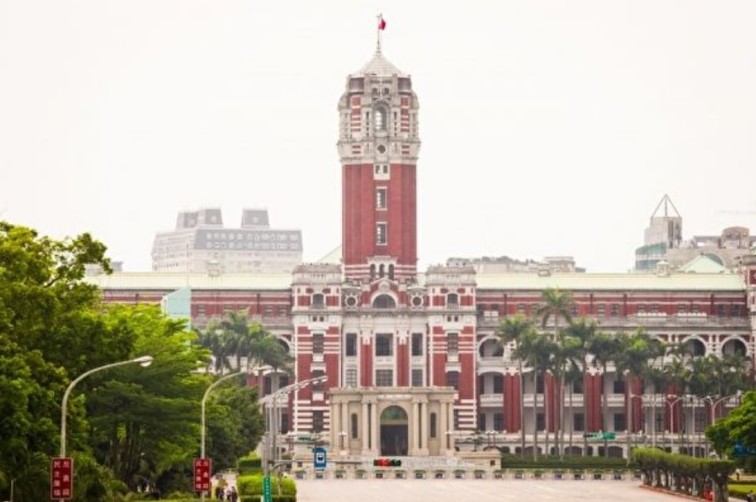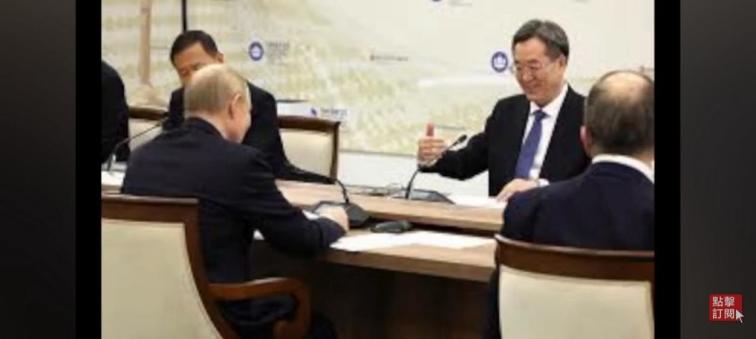Since last autumn, it hasn’t rained at all in Guangxi Province, resulting in the most severe drought in 60 years. Farmlands are cracked, and rice seedlings have withered thin leaves. Villagers say, “This year is truly unbearable.” (Screenshot from video)
[People News] On the 22nd, U.S. President Trump announced that strikes on three Iranian nuclear facilities—Fordow, Natanz, and Isfahan—had been successfully completed. The Chinese Communist Party (CCP) harshly condemned the United States for 'seriously violating the purposes and principles of the United Nations Charter and international law.' On the same day, a spokesperson for the Chinese Ministry of Foreign Affairs expressed 'strong condemnation' during a press conference, urging an immediate ceasefire, particularly from Israel. Meanwhile, disasters are frequently striking mainland China, with the population facing life-and-death situations, yet the Beijing authorities remain indifferent, focusing solely on other countries. The government's severe absence has left the public feeling disappointed and helpless, prompting some to issue a missing person notice online in search of Xi Jinping, the highest leader of the CCP.
Why is the CCP specifically calling for a ceasefire from Israel and advocating for 'peace and stability' in the Middle East? The answer is clear: it does not want to see the hard-earned Iranian nuclear assets destroyed, as this would mean losing Iran, a manipulated pawn that stirs up chaos in the region. On the surface, the CCP claims to be concerned about the Iranian civilians and to be 'upholding justice' for the sake of 'peace and stability' in the Middle East.
In recent years, the CCP has shown a particular 'concern' for international natural and man-made disasters, always rushing to express condolences. Why is this concern often driven by self-interest to gain fame and attention or to appease the international community, making it insincere? This is evident from the CCP's indifference to domestic natural and man-made disasters.
In recent days, Hunan Province has been experiencing severe flooding, the worst in its history, particularly in areas such as Zhangjiajie, Xiangxi Prefecture, and Changde, with Huaihua being especially hard hit. Rainfall has shattered historical records, prompting the release of water from 178 reservoirs across the province. The flooding has resulted in collapsed buildings, submerged towns, landslides, swept-away vehicles and homes, and numerous fatalities. Consequently, disaster prevention and relief agencies have activated a national-level emergency response. However, no senior officials from Zhongnanhai have stepped forward to express concern or offer condolences.
On June 22, the Hunan Provincial Water Resources Department reported that continuous rainfall has caused 14 rivers to exceed warning levels, leading to the largest flood in the Li River basin since 1998. The inflow into the Wuqiangxi Reservoir on the Yuanjiang River has surpassed 20,000 cubic meters per second, resulting in the declaration of Flood No. 1. On June 21, Hunan Province issued an orange rainstorm warning, with over 53,000 people evacuated.
Liang Gaowu, the head of Sangzhi County, confirmed that the flood has affected 120,000 residents, with direct economic losses estimated at 1.1 billion yuan. The entire city of Longshan County in Xiangxi has been inundated, with several casualties reported in underground garages. On June 20, it was officially announced that three individuals had died in the underground garage of the Longling International Community, and some supermarkets and stores had been looted by refugees. The public has criticised the authorities for their inadequate rescue efforts and for concealing the true extent of the disaster, making it difficult to accurately assess the casualties.
Meanwhile, while party media and mainland outlets have expressed significant concern over the bombing of Iran, there has been scant coverage of the dire situation faced by the people in Hunan, many of whom are on the brink of death. There has been no sight of senior Communist Party officials conducting on-site inspections, nor have there been any words of sympathy. Some citizens have taken to social media to post missing person notices: 'General Secretary Xi, where are you? Where are you?'
This indifference to domestic disasters has persisted for many years, as seen in the wind and flood disasters in Fujian and Guangdong in recent years, and the flooding in Zhuozhou, Hebei. Why does the Chinese Communist Party treat Chinese lives as if they are worthless and ignore public opinion? On one hand, the common people are undervalued and do not dare to protest, which does not threaten the stability of the regime; on the other hand, some disasters are actually caused by the Communist Party itself, such as the unannounced release of water from reservoirs and the environmental destruction resulting from their policies.
In contrast, General Secretary Xi Jinping is quick to express condolences to other countries in the wake of disasters.
On June 12, an Air India passenger plane crashed, and the following day, Xi Jinping sent a condolence message expressing deep sorrow, sincere condolences, and best wishes. On the same day, Li Qiang also sent a condolence message.
On March 28, a powerful earthquake measuring 7.7 struck Myanmar, and Xi Jinping sent a condolence message the very next day, expressing his "shock," "deep sorrow," "sincere condolences," and a commitment to "share in the suffering." Li Qiang also sent a condolence message on the same day.
The Chinese Embassy in Myanmar announced on the 14th that it was urgent to respond to the needs of the disaster-stricken population. Six batches of disaster relief supplies have been delivered to Myanmar, including 4,000 tents, 40,000 mosquito nets, 18,000 waterproof tarps, 4,000 sleeping bags, 10,000 blankets, over 55,000 first aid kits, 10,000 solar lamps, 2,000 sets of cooking utensils, over 38,800 first aid hygiene kits, and 2,000 boxes of instant noodles. The total cash and material donations for disaster relief exceed 10 billion kyats (approximately 20 million RMB). More batches of aid supplies and additional assistance are forthcoming.
The website of the Ministry of Foreign Affairs of the Communist Party of China frequently features messages of condolence and sympathy from Xi Jinping directed at other countries. This is not to suggest that offering condolences and assistance to foreign disasters is inappropriate; rather, the CCP's expressions of sympathy often appear self-serving, insincere, or driven by ulterior motives. If that were not the case, why does the CCP refrain from condemning the civilian casualties caused by Israel in Iran or the damage inflicted by Russia on Ukraine? Why has it ignored the loss of life among the Chinese populace for so many years?
Political analysts observe that the CCP's oppressive regime has deteriorated to a point where the destruction of China is becoming increasingly apparent, manifesting in moral decay, cultural decline, and environmental degradation, both natural and social. The regime is unable to express condolences for the ongoing natural and man-made disasters; otherwise, how could it rationalise the lengthy and varied condolence messages? The only recourse left is to gradually silence dissent, block information, and ultimately, even when disasters become known to society, people are left with no choice but to accept them, leading to the adage that 'silence is golden.'
Internet users argue that the information blockade is a systemic choice of the CCP. The regime often creates man-made disasters without warning to deflect blame for natural calamities, providing no explanations to the public and consistently treating citizens as mere 'objects of stability maintenance.' Those who seek to defend their rights are labelled as 'troublemakers.' If the oppressive governance remains unchanged, disasters will continue to occur. As long as the CCP remains in power, the truth about these disasters will remain 'invisible,' and human lives will always be subjected to the logic of 'stability maintenance.' Naturally, a few words of condolence from CCP leaders hold no value for the people; their indifference or absence at the scene is equally inconsequential. △
(Originally published by People News)











News magazine bootstrap themes!
I like this themes, fast loading and look profesional
Thank you Carlos!
You're welcome!
Please support me with give positive rating!
Yes Sure!